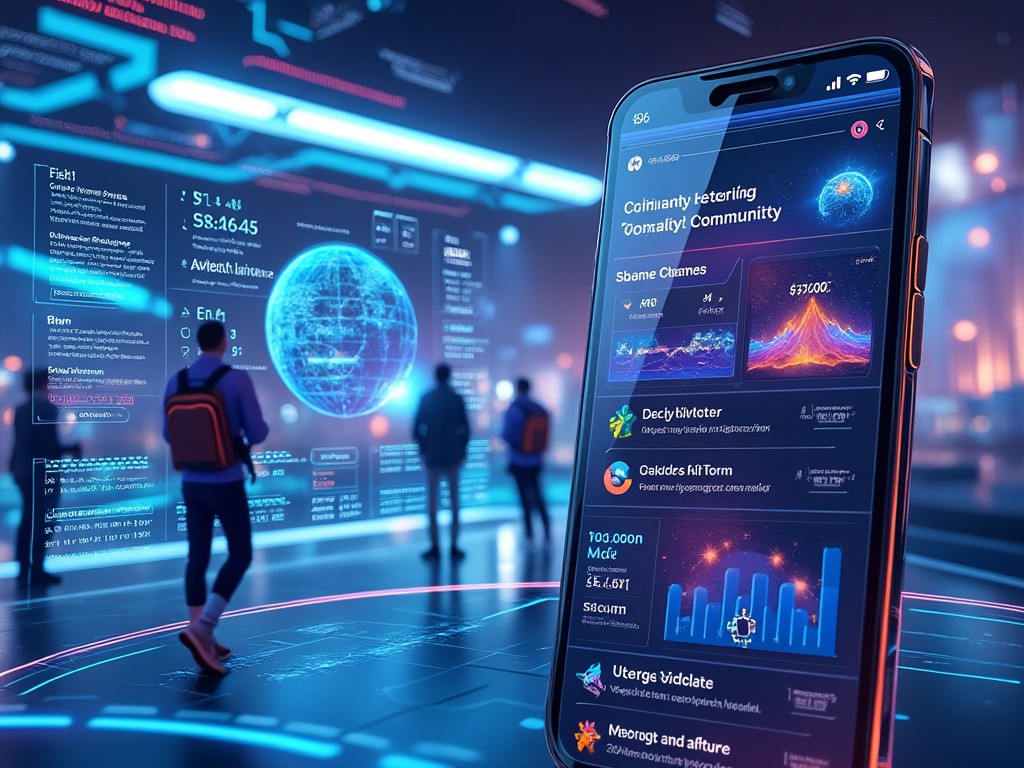What is a Negative Part of Being in Online Communities?
What is a Negative Part of Being in Online Communities?



Online communities offer a wealth of benefits: fostering connections with like-minded people, sharing knowledge and experiences, and providing support during difficult times.
However, there can also be downsides to participating in online communities.
Echo Chambers & Confirmation Bias
One major negative aspect is the creation of echo chambers. Online communities often attract people with similar interests or beliefs, leading to a situation where users are primarily exposed to information that confirms their existing views. This can limit critical thinking and exposure to diverse perspectives.
Studies by researchers at MIT in 2019 have shown that echo chambers can strengthen confirmation bias, the tendency to favor information that confirms pre-existing beliefs while ignoring contradictory evidence. This can lead to increased polarization and hinder productive discussions.
Negativity Bias & Online Trolls
Social media platforms are notorious for negativity bias, the tendency for negative information to spread more readily than positive information. Upsetting or inflammatory content is often more likely to generate comments and shares, creating a disproportionate presence in online communities. We've seen this with many clients we've worked with in the past — especially in crypto/Web3 communities.
In addition, online anonymity can embolden trolls, users who intentionally post inflammatory or offensive content to disrupt discussions or simply garner attention. According to Cornell University, Internet trolls are made, not born. They found that online anonymity reduces feelings of accountability, leading to more aggressive and hostile behavior.
Our founder wrote an article in 2019 about how to deal with crypto trolls specifically.
The Pressure to Perform & Social Comparison
Many online communities revolve around sharing curated snapshots of people's lives. This can lead to feelings of inadequacy and social comparison as users compare their everyday realities to the often idealized online personas they see.
Research by Judith B. White suggests that there is a dark side to social comparison. As frequent social comparison on social media can lead to anxiety, depression, and low self-esteem, particularly for teenagers and young adults.
The Trade-Off Between Online & Offline Interactions
While online communities can provide valuable connections, they can also replace face-to-face interactions. Spending excessive time online can lead to social isolation and a decline in real-world relationships.
A study by Michael David Prazak published at the University of North Dakota found that: "Social well-being was positively predicted by social intimacy and network number and negatively predicted by negative attitudes toward technology, problematic internet use, and online self-disclosure."
Finding Balance and Prioritizing Well-Being
Online communities can be a fantastic resource, but it's important to be aware of the potential downsides. Here are some tips for fostering a healthier online experience:
Seek Diverse Perspectives: Make an effort to follow accounts and participate in communities that offer a variety of viewpoints.
Take Breaks: Disconnect from social media regularly and prioritize spending time with loved ones in the real world.
Curate Your Feed: Utilize platform features to limit exposure to negativity and prioritize content that uplifts and inspires you.
Focus on Real-World Connections: Don't let online interactions replace in-person interactions. Make time for face-to-face socializing.
Build Resilience: At Faiā, we believe this isn't talked about enough. But building resilience is just as important as avoiding, ignoring, or discouraging trolls. By engaging with trolls, you can sometimes learn a lot about yourself and them. A lot of the time, trolls are seeking attention. If you can learn to mimic their behaviors, or understand their desires, trolls can even become friends (see here).
By being mindful of these potential drawbacks and taking steps to mitigate them, you can maximize the positive aspects of online communities and create a more balanced and fulfilling online experience.
Online communities offer a wealth of benefits: fostering connections with like-minded people, sharing knowledge and experiences, and providing support during difficult times.
However, there can also be downsides to participating in online communities.
Echo Chambers & Confirmation Bias
One major negative aspect is the creation of echo chambers. Online communities often attract people with similar interests or beliefs, leading to a situation where users are primarily exposed to information that confirms their existing views. This can limit critical thinking and exposure to diverse perspectives.
Studies by researchers at MIT in 2019 have shown that echo chambers can strengthen confirmation bias, the tendency to favor information that confirms pre-existing beliefs while ignoring contradictory evidence. This can lead to increased polarization and hinder productive discussions.
Negativity Bias & Online Trolls
Social media platforms are notorious for negativity bias, the tendency for negative information to spread more readily than positive information. Upsetting or inflammatory content is often more likely to generate comments and shares, creating a disproportionate presence in online communities. We've seen this with many clients we've worked with in the past — especially in crypto/Web3 communities.
In addition, online anonymity can embolden trolls, users who intentionally post inflammatory or offensive content to disrupt discussions or simply garner attention. According to Cornell University, Internet trolls are made, not born. They found that online anonymity reduces feelings of accountability, leading to more aggressive and hostile behavior.
Our founder wrote an article in 2019 about how to deal with crypto trolls specifically.
The Pressure to Perform & Social Comparison
Many online communities revolve around sharing curated snapshots of people's lives. This can lead to feelings of inadequacy and social comparison as users compare their everyday realities to the often idealized online personas they see.
Research by Judith B. White suggests that there is a dark side to social comparison. As frequent social comparison on social media can lead to anxiety, depression, and low self-esteem, particularly for teenagers and young adults.
The Trade-Off Between Online & Offline Interactions
While online communities can provide valuable connections, they can also replace face-to-face interactions. Spending excessive time online can lead to social isolation and a decline in real-world relationships.
A study by Michael David Prazak published at the University of North Dakota found that: "Social well-being was positively predicted by social intimacy and network number and negatively predicted by negative attitudes toward technology, problematic internet use, and online self-disclosure."
Finding Balance and Prioritizing Well-Being
Online communities can be a fantastic resource, but it's important to be aware of the potential downsides. Here are some tips for fostering a healthier online experience:
Seek Diverse Perspectives: Make an effort to follow accounts and participate in communities that offer a variety of viewpoints.
Take Breaks: Disconnect from social media regularly and prioritize spending time with loved ones in the real world.
Curate Your Feed: Utilize platform features to limit exposure to negativity and prioritize content that uplifts and inspires you.
Focus on Real-World Connections: Don't let online interactions replace in-person interactions. Make time for face-to-face socializing.
Build Resilience: At Faiā, we believe this isn't talked about enough. But building resilience is just as important as avoiding, ignoring, or discouraging trolls. By engaging with trolls, you can sometimes learn a lot about yourself and them. A lot of the time, trolls are seeking attention. If you can learn to mimic their behaviors, or understand their desires, trolls can even become friends (see here).
By being mindful of these potential drawbacks and taking steps to mitigate them, you can maximize the positive aspects of online communities and create a more balanced and fulfilling online experience.
Related Blogs


How Small Business Owners Can Quickly Validate & Manage WhatsApp Communities Effectively
Learn how to quickly validate and manage a WhatsApp community by learning from a product called YGSD.


Can Communities Be Built, or Only Influenced?
Can communities be built, or only influenced? Explore how leadership shapes emergent behavior, fostering authentic connection without control.


Choosing the Right Online Community Platform
Selecting the right online community platform is crucial for fostering engagement, growth, and sustainability. This guide shows you how.